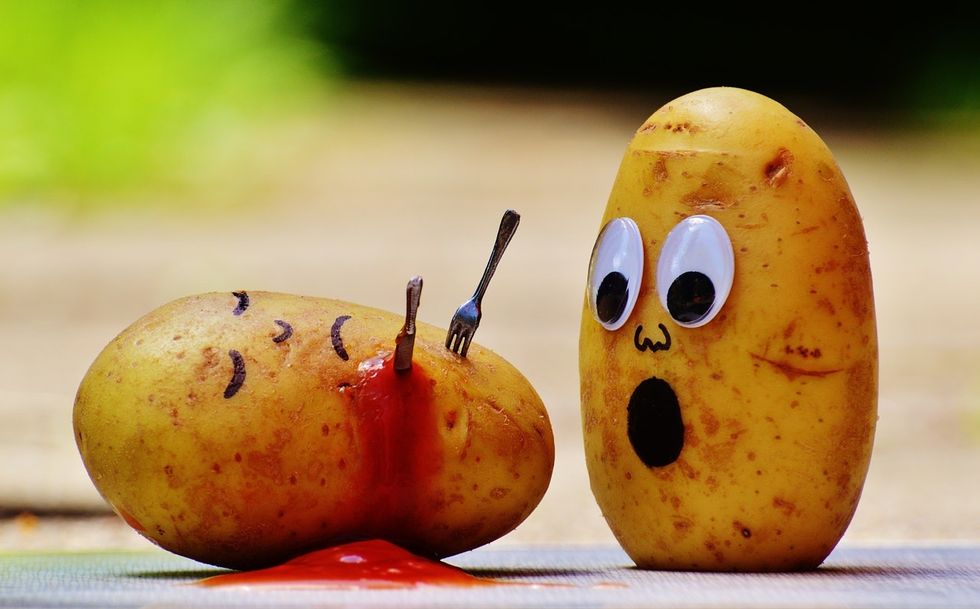Low carb diets aren't new and have been around for years. But now there is a new kid on the block and his name is zero carb diet. Although I'm usually open-minded to new things, this got me slightly worried. Depending on how you approach it, a no-carb diet could be even more restrictive than a keto diet since it basically promotes eliminating carbohydrates completely.
Why is that a problem? Well, your average vegetables contain around 3 to 4 grams of net carb per cup and an ounce of nuts has about the same. So when you think about it, a truly zero carb diet eliminates more healthy foods than any other diet.
I believe that maintaining or losing weight in a healthy way doesn't need to go to the extremes of abolishing carbs. Actually, attempting to eliminate all carbs from your menu can have some detrimental effects on both your health and quality of life. Let's consider the four biggest dangers:
1. You may lack some important nutrients
Severely cutting carbs will lower your intake of many crucial nutrients including minerals, vitamins, fiber, prebiotics, antioxidants, and healthy fats. There is no supplement or multivitamin that can replace the numerous nutrients we may lack with this diet. This insufficiency may have a harmful effect on our immune system, cognitive health, and even put us at risk for heart disease. If you look at the diets of people in Blue Zones (places where people live the longest and healthiest lives) they are for the most part plant-based and relatively high in carbs.
2. Avoiding carbs could result in poor digestive health
The daily recommended amount of fiber is at least 25 grams per day. Well, you can only find fiber in foods that have carbohydrates. A fiber-rich diet is said to considerably lower risk of heart disease, high blood pressure, stroke, diabetes, obesity, and certain digestive disorders such as gastroesophageal reflux disease. Some types of fiber also act as prebiotics, which is basically food for the helpful gut bacteria that promote immunity and mental health. I'm already hearing some people saying "well there are fiber supplements…" but research has shown that they simply can't provide the same benefits as fiber obtained from whole foods.
3. You may experience low carb flu
Many of you may have heard of the keto flu. It's something the people experience when starting a keto diet and its symptoms include brain fog, headaches, nausea, dizziness, irritability, and muscle soreness. Your brain typically uses up to 60% of all the carbs you consume and the keto flu occurs as the result of your brain adapting to a different fuel source. However, just because our bodies are amazing and can adapt doesn't mean this is good. The same applies to abandoning carbs. Since it doesn't promote optimal health, why put your body through such torture?
4. There may be psychological and social side effects
Social eating may become a real challenge for those who follow extreme diets. I've talked to numerous people who follow strict diets and many of them told me they avoid get-togethers with family and friends or that their diets made them become fearful of food. Many of the people who can't maintain the strict diet and end it before reaching their goals often experience guilt and even depression.
Starting and stopping strict diets is a pattern that has the potential to turn into serious eating disorders and ruin people's quality of life. An organized review of 11 studies came to the conclusion that plant-based diets which include healthy carbs are linked with significant improvements in a person's emotional well-being and even help with depression.
Zero carb diet conclusions
The bottom line is that a no-carb diet not needed nor recommended for either optimal health or long-term weight loss. In fact, research shows that a plant-based diet with whole, fiber-rich foods, and monounsaturated fats actually helps to prevent and manage type 2 diabetes. Also, plant-based diets with a moderate to a high content of carbohydrates have shown to promote weight loss, support healthy gut microbiome, and improve insulin resistance.
How to include carbs in your diet
Completely eliminating carbs and only consuming fat and protein is a simple way to lose weight, but it's not better and not very sustainable. It's much better to increase your intake of various non-starchy veggies and make them the core of your eating pattern. Add portions of whole grains, starchy veggies, and fruit that match your body's fuel needs which you can base on your gender, age, weight goal, and activity level. Basically, a petite 40-year-old woman with an office job and a goal to lose 15 pounds will need a different amount of carbs than a tall, 30-year-old, male athlete.

















